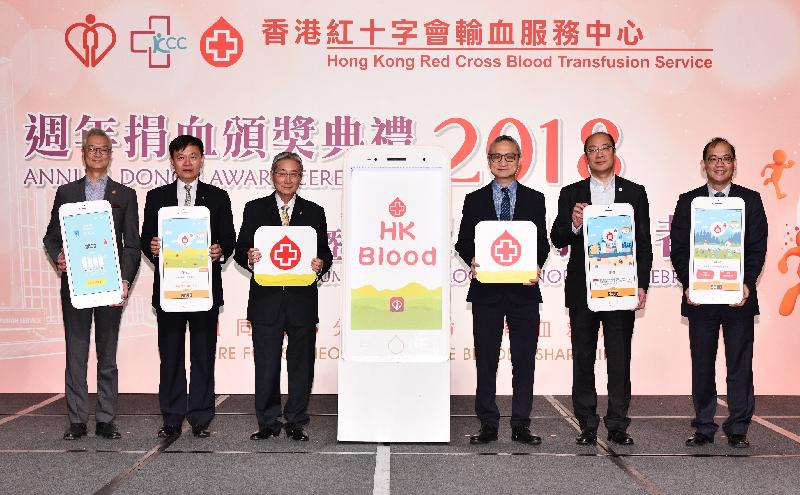Award presented for the blood donors in 2018 Annual Donor Award Ceremony (with photos)
The following is issued on behalf of the Hospital Authority:
The Hong Kong Red Cross Blood Transfusion Service (BTS) held its 2018 Annual Donor Award Ceremony cum World Blood Donor Day Celebration today (June 17) to present awards to donors who achieved 50 donations and above (multiples of 25) in 2017/18. A total of 1,327 donors are awarded. A kick-off ceremony was also held to launch BTS' new mobile app "HK Blood" . With the help of the mobile platform, the message of “Give Blood Save Life” would be able to reach more people across the city.

